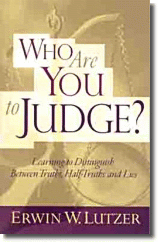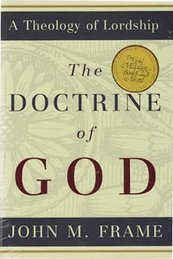Saturday, July 21, 2007
Prof Larry Hurtado's Lectures
Professor of New Testament Language, Literature & Theology and Director
of the Centre for the Study of Christian Origins at the University of Edinburgh.
Date: Friday, 3 August, 2.00 - 3.30pm
Venue: TTC's Multi-Purpose Hall
Topic: "Jesus - Devotion in Recent Scholarship"
Professor Hurtado has this to say about his work: my own research has always been driven by questions: how the New Testament came to us, how the Gospels were transmitted in the early centuries, what this or that passage means, how the early Christians adapted traditions from their religious background and how they innovated, how their worship began and how it was shaped, how they accommodated Christ along with God in their devotional life, how Christian belief and practice was shaped by opposition and historical developments of the first two centuries . . .
Ichthus Seminar Series
"Binitarian Monotheism: God and Jesus in the NT"
By Prof Larry W. Hurtado
Date & Time: 3 August 2007 7.30 pm
Singapore Bible College
9-15 Adam Road Singapore 289886
Abstract
"In a number of publications over the last 20 years, I have sought to analyze in historical terms the emergence and earliest manifestations of devotion to Jesus, particularly devotion to him as in some way sharing divine status, significance, and attributes. In this presentation, I draw upon this body of work. The major emphases will be on the historical significance of this devotion to Jesus, a phenomenon without true precedent or analogy at the time of its origin, and on the resulting impact upon the early Christian understanding of God. I contend that the earliest Jesus-devotion directly demanded and shaped the development of Christian thinking and practice that led later to the doctrine of the Trinity."
About the Speaker
Larry Hurtado is Professor of New Testament Language, Literature and Theology in the University of Edinburgh (since August 1996), and Director of the Centre for the Study of Christian Origins.
His publications include an influential study of the early textual history of the Gospel of Mark (Text-Critical Methodology and the Pre- Caesarean Text: Codex W in the Gospel of Mark [Eerdmans, 1981), a popular-level commentary on the Gospel of Mark (Mark: New International Bible Commentary [Hendrickson, 1989]), a frequently- cited study on the origins of the worship of Christ (One Lord, One God: Early Christian Devotion and Ancient Jewish Monotheism [Fortress Press, 1988; 2nd edition 1998, repinted 2003, T. & T. Clark]), a small volume on earliest Christian worship (At the Origins of Christian Worship: The Context and Character of Earliest Christian Devotion [Paternoster Press, 1999; Eerdmans, 2000]), a major study focused on the first two centuries of Christianity, Lord Jesus Christ: Devotion to Jesus in Earliest Christianity (Eerdmans, 2003), and How on Earth did Jesus Become a God? Historical Questions about Erliest Devotion to Jesus (Eerdmans, 2005). His most recent book, The Earliest Christian Artifacts: Manuscripts and Christian Origins (Eerdmans, 2006), demonstrates how Christian manuscripts of the second and third centuries CE throw important light on a number of wider historical questions about early Christianity.
In addition, he has published over 60 articles in scholarly journals, books and reference works on the New Testament and origins of Christianity. He has done editorial work on several publications, including the Dictionary of Biblical Tradition in English Literature (Gen. Editor D. L. Jeffrey, Eerdmans, 1992), for which he was the Associate Editor.
Starting in 2001, he convened an international team of scholars under the auspices of the Society of Biblical Literature to undertake fresh studies of the Freer biblical manuscripts, their work published by the SBL in 2006 (in observance of the centenary of the acquisition of these manuscripts by Charles Freer): The Freer Biblical Manuscripts: Fresh Studies of an American Treasure Trove, ed. L. W. Hurtado (Society of Biblical Literature, 2006).
He also served on the editorial board of Studies in Religion/Sciences religieuses, and as an Associate Editor of Critical Review of Books in Religion, and is currently also a member of the editorial board of the Journal for the Study of the Historical Jesus, TC: A Journal of Biblical Textual Criticism, and Expository Times.
He has given invited lectures in a number of colleges and universities in the U.S., Canada, Britain, Israel, Australia, New Zealand, Singapore, and Germany.
Prior to his current appointment, he was Professor of Religion in the University of Manitoba (1978-96), where he was also founding Director of the Institute for the Humanities (1990-92), and Assistant Professor of New Testament in Regent College (Vancouver, BC, 1975-78). He was born in Kansas City, Missouri, in 1943.
Audience
Pastors, theological students, scholars.
Fee
$10 ($5 for SBC students. Free admission for IRC members with their membership card). Fee includes light refreshment to be served 30 minutes before seminar starts.
Registration
Interested parties, please email your name, contact and the event interested in to icht...@sbc.edu.sg, or call +65 6559 1555x7302 for registration and enquiries. Prior registration is preferred due to limited seats. Participants can pay on the day of the seminar.
Monday, April 02, 2007
Aldersgate 2007
He received his Ph.D in Theoretical Astrophysics in 1987 at Durham. He went on to do his ministerial training at Wesley House, Cambridge and ministered at three Methodist churches. In 2004 he received his second Ph.D, this time in Systematic Theology, also from Durham. He is active in the World Methodist Council.
While capable of speaking and writing authoritatively in such diverse fields as theology and astrophysics, he has always enjoyed meeting up with youth.
The convention begins with the Adult and Youth Seminars on May 19 and concludes with the Aldersgate Service on May 24.
The Aldersgate Convention is an annual opportunity for Methodists in Singapore to affirm their unity in Christ as they gather together to explore their Wesleyan heritage. In the past, topics have focused on Methodist understandings of the Bible, Tradition, Reason and Experience. During the 2006 Aldersgate Convention, Rev Dr M. Robert Mulholland discusses the topic, “Shaped by the Word”. Other past speakers include Dr Thomas Oden, William Abraham,
and Dr Ajith Fernando.
On Sunday night, May 20, the Methodist School of Music will take the lead in the Aldersgate Hymn Festival at Victoria Concert Hall. Celebrating the Tercentenniel of Charles Wesley, the Hymn Festival will feature several new Asian musical settings for his hymns.
The convention continues with three talks the following three evenings on May 21, 22 and 23, with the themes: “God, the Big Bang and Stephen Hawking”, “Are we alone in the universe? SETI (Search for Extra-terrestrial Intelligence) and God”, and “Left behind, Frozen or Fried?” Beginning at 7.45 pm, the talks will be held at the new Centre for Performing Arts at ACS (Independent) at Dover Road. Church members are encouraged to invite their friends and family members. At the Aldersgate Service on Thursday evening, May 24, the Rev Dr Wilkinson will preach on the topic “The Supremacy of Jesus”. The service, to begin at 7.45 pm, will also be held at the Centre for Performing Arts at ACS (Independent).
--The Methodist Message
Aldersgate Overview
Aldersgate Adult Seminar
Registration required
"Explaining Jesus in a Hi-Tech World"
Saturday, May 19
9 am to 12 noon
Venue: Faith Methodist Church
Aldersgate Hymn Festival
Tickets required
Sunday, May 20, 2007
Please note time change: 7:30 pm
Venue: Victoria Concert Hall
Call Methodist School of Music, 6767-5258
Details
Aldersgate Evening Talks
No registration or tickets required
Monday - Wednesday, May 21-23, 2007
7:45 to 9:30 pm each night
Venue: ACS (Independent)
Aldersgate Service
No registration or tickets neededThursday, May 24, 2007
7:45 to 9:45 pm
Venue: ACS (Independent)
Friday, January 05, 2007
Forgiveness (1)
Forgiveness
“Forgiveness can refer to three different kinds of relationships: the interpersonal or social forgiveness between two parties, a person’s forgiveness of him or herself, and God’s forgiveness.” (Aaron Lazare, On Apology, p. 230) I think any discussions on the topic of forgiveness have to start with God’s forgiveness. Thus, a pre-understanding of man’ fallen state is needed.
God’s forgiveness of Man In a Fallen State
In the creation account of Genesis, we are introduced to God the Creator who made the heavens, the earth, and all that dwell on earth, including human beings. However, sin entered the human race when Adam and Eve sinned (Genesis 3). But how do we know original sin is true/ real? Isn’t it outdated? As G K Chesterton once said, original sin is the only doctrine one can confirm by reading the front page of the daily newspaper. After Adam, with the influence of original sin, “holding grudges and seeking revenge” seems to come to us naturally. The fall of mankind results in the need for forgiveness, both from God and between individuals (though both are also inextricably linked). As Susan L. Nelson puts it, the doctrine of original sin has meant that it is impossible for human beings not to be involved in sin in some way:
Forgiveness means giving up our illusions of innocence. The Presbyterian insistence on the doctrine of original sin has meant that we realize it is impossible for human beings not to be involved in sin in some way. To live in the First World, with all our advantages, is by definition to reap from others' hard work. We [Americans] live off of others' suffering, and thus we are complicit in that suffering. Forgiveness means giving up postures of innocence--and all the tactics of cover-up and denial that take so much energy and only make matters worse. In the context of God's grace, we do not need to proclaim our innocence, but to seek ways to rectify the injustice in which we participate. [What Presbyterians Believe, Forgiveness [March 1998]; emphasis in bold is mine]


